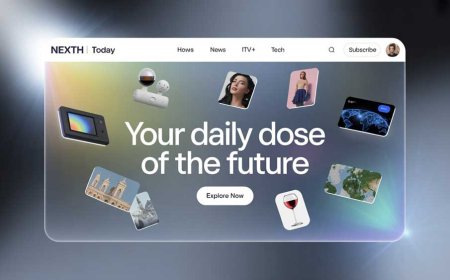OpenAI Unveils Codex: The AI Coding Agent Revolutionizing Software Development
OpenAI has launched Codex, an advanced AI coding agent that assists developers with writing code, fixing bugs, running tests, and managing multiple tasks. Available to ChatGPT Pro, Team, and Enterprise users, Codex is revolutionizing software development with multitasking capabilities, human-like code generation, and seamless IDE integration.

In a bold step toward reshaping the future of software engineering, OpenAI has officially launched Codex, a powerful AI coding agent engineered to transform the way developers write, test, debug, and manage code. Announced on May 16, 2025, Codex is now available to ChatGPT Pro, Team, and Enterprise subscribers, with Plus and Edu user access on the horizon.
What Is Codex?
At its core, Codex is a cloud-based AI software engineering agent powered by codex-1, a specialized variant of OpenAI’s o3 model. Tuned specifically for programming-related tasks, codex-1 brings advanced reasoning and problem-solving capabilities to the world of code.
Codex operates in a secure sandbox environment, which is dynamically configured with a user's code repository. It autonomously writes new features, resolves bugs, proposes pull requests, and executes iterative tests until all conditions are met—dramatically reducing manual overhead and time-to-deployment.
Unlike traditional AI chatbots that offer advice through static text, Codex functions as an interactive agent that can run commands, manipulate files, and interact with your development stack, making it more of a virtual teammate than a passive assistant.
Key Features and Benefits
Multitasking Intelligence
Codex can juggle multiple engineering workflows simultaneously. Whether it’s refactoring code, optimizing functions, writing unit tests, or documenting APIs, it handles tasks in parallel—without interrupting the user’s session or workflow.
✍️ Human-Like Code Generation
Codex has been trained using reinforcement learning on a wide array of real-world programming challenges. The result is clean, modular code that mirrors the user’s style guide and follows best practices, offering suggestions that are both context-aware and production-ready.
Integrated into Your IDE via ChatGPT
Developers access Codex through the familiar ChatGPT interface. Its behavior can be customized through a repository-specific AGENTS.md configuration file, which sets context, defines coding standards, and outlines project goals—essentially giving Codex its “job description.”
⚡ Streamlined Workflow Efficiency
Codex removes the burden of repetitive coding chores, letting engineers spend more time on creative problem-solving and system design. From automated documentation to instant test creation, it acts as a workflow accelerator.
Local Integration with Codex CLI
OpenAI also introduced the Codex CLI, a lightweight command-line interface that brings Codex’s capabilities directly into the terminal. Featuring low-latency response times and integrated Q&A support, the CLI now uses ChatGPT credentials for simplified authentication and seamless access.
Availability and Pricing
Codex is launching as a research preview available to:
-
ChatGPT Pro users ($200/month)
-
Team and Enterprise plans
OpenAI has stated that access for ChatGPT Plus and Edu subscribers will follow soon. While usage is initially generous, rate limits and credit-based access tiers are expected in the coming weeks to support scaling.
A Glimpse Into the Future
In a move that underscores its deepening investment in developer tools, OpenAI is reportedly in acquisition talks with Windsurf, a rival AI coding assistant, at a valuation of $3 billion. This could hint at an expanding ecosystem of tools built atop or alongside Codex to power the next generation of intelligent software development.
The launch of Codex signals a paradigm shift in how developers collaborate with AI. No longer just an autocomplete tool or code suggestion engine, Codex is a true AI partner—capable of understanding intent, making autonomous decisions, and producing production-grade software components with minimal human intervention.
The Rise of the AI Developer Sidekick
As AI agents like Codex become more deeply integrated into the software lifecycle, developers may soon find themselves relying on intelligent companions to manage everything from build automation to architectural analysis.
OpenAI’s Codex is more than a coding assistant—it’s a glimpse into the future of collaborative development, where human ingenuity meets machine precision to build faster, safer, and smarter software.
What's Your Reaction?
































